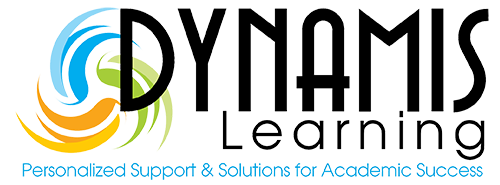Does your child struggle with anxiety right before a math test? Do they tend to do well in school generally speaking, but they are not scoring high on their math tests? Are you looking for ways to help your child ace their math tests in the classroom and on standardized tests?
When it comes to math, it can be hard for students to have the confidence they need if they are unsure how to prepare for assignments and tests. Math can be a difficult subject for kids to master, regardless of how strong they are academically. The truth is that it’s not uncommon for kids to struggle with math. Education World reports that American students account for only 8.8% of all top-level K-12 math performers in the world. They go on to say that only 36% of American high school students entering college are prepared for university-level math coursework.
 For students to be successful, they need strategies to help them navigate tests in a time-effective way. Multiple-choice tests are the most common types of tests given to students, and they require that students know how to engage in the process of elimination and find out the types of things that serve as distractors within the answer choices of the test. Students also need to be prepared for tests that require them to show their work. The following are some helpful tips from Brown Math to help students do well on math tests.
For students to be successful, they need strategies to help them navigate tests in a time-effective way. Multiple-choice tests are the most common types of tests given to students, and they require that students know how to engage in the process of elimination and find out the types of things that serve as distractors within the answer choices of the test. Students also need to be prepared for tests that require them to show their work. The following are some helpful tips from Brown Math to help students do well on math tests.
How to prepare for math tests:
- Don’t cram: Many students try to learn new material right before the test. Though this might yield some results where there is a lot of rote memory work involved, “most of math is not memory work but recognizing patterns and selecting and applying useful techniques to problems.” For the most part, you’re being tested on skills rather than memorized facts.
- Address test anxiety: It’s normal to be anxious about taking tests, but high levels of anxiety can trigger your flight response. This can also cause you to avoid the subject which makes anxiety worse.
- Work on a variety of problems: Because an exam includes several weeks’ worth of problem types mixed in a different order, you should practice problems that you are not aware of upfront. Do problems in the review section of the textbook, problems from past homework/tests, and practice tests from the textbook that have the problem types mixed in order.
- Create a crib sheet: Try to condense everything that you’ll need to a sheet of paper. If your teacher or professor doesn’t allow crib sheets during the test, make one to help you organize the material in your mind. This will help you retain the material.
 Strategies for taking the test
Strategies for taking the test
- Utilize the entire time allotted: Resist the urge to leave a test environment early. Use the extra time to go back over your work, making sure that you answered all parts of each question as written and in the right form.
- Do a brain dump: Immediately write key formulas on the empty section of the test paper so that you’ll have them available later when you need them.
- Show your work in order and in a clear way: Make sure to discipline yourself to show all the steps in your solutions, and show them one after the other.
- Don’t spend too much time on one problem: Divide the time allotted for the test by the number of questions to determine how much time you’ll have to do each problem. If you find yourself spending too much time on a question, come back to it later. For word problems, you might get partial credit if you get to the point of setting up a correct equation. If the equation is going to be hard to solve, you can come back to it after working on other problems.
Taking a math test doesn’t have to be overwhelming or anxiety-inducing if your child plans ahead and is well-prepared for the exam. There are also ways to enhance study skills like developing mnemonic devices, starting a study group, and teaching others, writes CalcWorkshop. They say that research shows “when students spend time teaching others, they outperform and have better retention than those who merely re-study.” This is because teaching requires active recall, which is a type of retrieval practice that “makes an enormous impact on your long-term achievement,” they go on to say.
About a year ago, we started to see an increase in test-anxiety in kids, especially in math. With remote learning going on in many schools, students struggled to keep up. Our tutors worked with a group of students who needed help with standardized tests (ie, the Georgia Milestones Assessment). After working with our tutors on study skills and strategies, we saw great improvement, not only in the students’ anxiety levels but their scores as well.
 If you feel that your child needs support in the areas of study skills or taking tests, our tutors will work with them to understand the problem and develop solutions to help them be successful. If your child’s struggles are related to a learning disability or anxiety, talk to your child’s school about the possibilities of getting a 504 plan as an intervention for them. A 504 plan can provide accommodations like extended time, a quiet testing location, and modifications. It’s key that you get the process started as soon as possible because it could take several weeks to get approval. Additionally, it will need to be in place a few months prior to your child starting any type of standardized testing.
If you feel that your child needs support in the areas of study skills or taking tests, our tutors will work with them to understand the problem and develop solutions to help them be successful. If your child’s struggles are related to a learning disability or anxiety, talk to your child’s school about the possibilities of getting a 504 plan as an intervention for them. A 504 plan can provide accommodations like extended time, a quiet testing location, and modifications. It’s key that you get the process started as soon as possible because it could take several weeks to get approval. Additionally, it will need to be in place a few months prior to your child starting any type of standardized testing.
 We, at Dynamis Learning Academy, believe in helping parents find a solution to a child’s academic problems. We work in collaboration with your child’s teacher and school to find out what the teacher sees in the classroom vs. what the parent sees at home. Contact owner Helen Panos at helen@dynamislearningacademy.com or at 770-282-9931 to schedule a free consultation about K-12 tutoring, test taking tips, SAT/ACT Prep, online workshops, or any other area of concern.
We, at Dynamis Learning Academy, believe in helping parents find a solution to a child’s academic problems. We work in collaboration with your child’s teacher and school to find out what the teacher sees in the classroom vs. what the parent sees at home. Contact owner Helen Panos at helen@dynamislearningacademy.com or at 770-282-9931 to schedule a free consultation about K-12 tutoring, test taking tips, SAT/ACT Prep, online workshops, or any other area of concern.
Helen is an expert educator with over 25 years of experience. She believes in the importance of helping children reach their potential, so they become well-rounded, intelligent citizens with a positive influence and impact on society. Helen assists parents in accessing the best skills, strategies, tools, and resources to help children be successful and ultimately excel in the world.
Does your child struggle with anxiety right before a math test? Do they tend to do well in school generally speaking, but they are not scoring high on their math tests? Are you looking for ways to help your child ace their math tests in the classroom and on standardized tests?
When it comes to math, it can be hard for students to have the confidence they need if they are unsure how to prepare for assignments and tests. Math can be a difficult subject for kids to master, regardless of how strong they are academically. The truth is that it’s not uncommon for kids to struggle with math. Education World reports that American students account for only 8.8% of all top-level K-12 math performers in the world. They go on to say that only 36% of American high school students entering college are prepared for university-level math coursework.

For students to be successful, they need strategies to help them navigate tests in a time-effective way. Multiple-choice tests are the most common types of tests given to students, and they require that students know how to engage in the process of elimination and find out the types of things that serve as distractors within the answer choices of the test. Students also need to be prepared for tests that require them to show their work. The following are some helpful tips from Brown Math to help students do well on math tests.
How to prepare for math tests:
- Don’t cram: Many students try to learn new material right before the test. Though this might yield some results where there is a lot of rote memory work involved, “most of math is not memory work but recognizing patterns and selecting and applying useful techniques to problems.” For the most part, you’re being tested on skills rather than memorized facts.
- Address test anxiety: It’s normal to be anxious about taking tests, but high levels of anxiety can trigger your flight response. This can also cause you to avoid the subject which makes anxiety worse.
- Work on a variety of problems: Because an exam includes several weeks’ worth of problem types mixed in a different order, you should practice problems that you are not aware of upfront. Do problems in the review section of the textbook, problems from past homework/tests, and practice tests from the textbook that have the problem types mixed in order.
- Create a crib sheet: Try to condense everything that you’ll need to a sheet of paper. If your teacher or professor doesn’t allow crib sheets during the test, make one to help you organize the material in your mind. This will help you retain the material.

Strategies for taking the test
- Utilize the entire time allotted: Resist the urge to leave a test environment early. Use the extra time to go back over your work, making sure that you answered all parts of each question as written and in the right form.
- Do a brain dump: Immediately write key formulas on the empty section of the test paper so that you’ll have them available later when you need them.
- Show your work in order and in a clear way: Make sure to discipline yourself to show all the steps in your solutions, and show them one after the other.
- Don’t spend too much time on one problem: Divide the time allotted for the test by the number of questions to determine how much time you’ll have to do each problem. If you find yourself spending too much time on a question, come back to it later. For word problems, you might get partial credit if you get to the point of setting up a correct equation. If the equation is going to be hard to solve, you can come back to it after working on other problems.
Taking a math test doesn’t have to be overwhelming or anxiety-inducing if your child plans ahead and is well-prepared for the exam. There are also ways to enhance study skills like developing mnemonic devices, starting a study group, and teaching others, writes CalcWorkshop. They say that research shows “when students spend time teaching others, they outperform and have better retention than those who merely re-study.” This is because teaching requires active recall, which is a type of retrieval practice that “makes an enormous impact on your long-term achievement,” they go on to say.
About a year ago, we started to see an increase in test-anxiety in kids, especially in math. With remote learning going on in many schools, students struggled to keep up. Our tutors worked with a group of students who needed help with standardized tests (ie, the Georgia Milestones Assessment). After working with our tutors on study skills and strategies, we saw great improvement, not only in the students’ anxiety levels but their scores as well.

If you feel that your child needs support in the areas of study skills or taking tests, our tutors will work with them to understand the problem and develop solutions to help them be successful. If your child’s struggles are related to a learning disability or anxiety, talk to your child’s school about the possibilities of getting a 504 plan as an intervention for them. A 504 plan can provide accommodations like extended time, a quiet testing location, and modifications. It’s key that you get the process started as soon as possible because it could take several weeks to get approval. Additionally, it will need to be in place a few months prior to your child starting any type of standardized testing.

We, at Dynamis Learning Academy, believe in helping parents find a solution to a child’s academic problems. We work in collaboration with your child’s teacher and school to find out what the teacher sees in the classroom vs. what the parent sees at home. Contact owner Helen Panos at helen@dynamislearningacademy.com or at 770-282-9931 to schedule a free consultation about K-12 tutoring, test taking tips, SAT/ACT Prep, online workshops, or any other area of concern.
Helen is an expert educator with over 25 years of experience. She believes in the importance of helping children reach their potential, so they become well-rounded, intelligent citizens with a positive influence and impact on society. Helen assists parents in accessing the best skills, strategies, tools, and resources to help children be successful and ultimately excel in the world.
